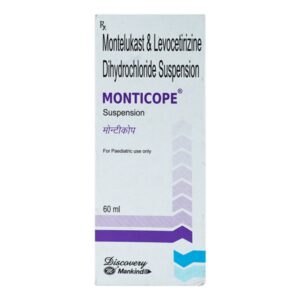Description
About Mucolite Drops
Mucolite Drops belongs to a class of drugs called ‘mucolytic agents’ (cough/sputum thinner) primarily used to treat acute (short term) and chronic (long term) respiratory diseases associated with excess mucus. Mucolite Drops is used in the conditions of acute and recurrent bronchitis (airways infection), laryngitis (voice box infection), tracheitis (windpipe infection) and chronic diseases like chronic bronchitis and chronic obstructive pulmonary disease (COPD).
Mucolite Drops contains Ambroxol hydrochloride that works by thinning and loosening phlegm (mucus) in the lungs, windpipe and nose. Mucolite Drops breaks down the acid mucopolysaccharide fibres and makes the mucous (sputum) thinner and less dense/viscous, removing sputum efficiently by coughing. However, the viscosity of sputum remains low for as long as treatment is maintained.
Use Mucolite Drops as prescribed. Based on your child’s condition your paediatrician will suggest a suitable dosage regime. Mucolite Drops may cause common side effects such as nausea, taste change, and numbness in the mouth, tongue and throat. Most of these side effects do not require medical attention and gradually resolve over time. However, if the side effects persist or bother your child, please seek medical help.
If your child is allergic to ambroxol, inform your doctor. And also, inform your child’s entire medical history including ongoing medications to avoid unwanted effects and possible interactions. Do not give more than the prescribed dose. Do not use other cough medicines unless prescribed by the doctor.
Uses of Mucolite Drops
Medicinal Benefits
Mucolite Drops is a mucolytic agent (mucus thinner) that is used to treat acute (short-term) and chronic (long-term) respiratory diseases associated with excess mucus. Mucolite Drops helps in making sputum less viscous so that it can be coughed out easily in the conditions of acute and recurrent bronchitis (airways infection), laryngitis (voice box infection), tracheitis (windpipe infection) and chronic diseases like chronic bronchitis and chronic obstructive pulmonary disease (COPD). Mucolite Drops helps in thinning and loosening phlegm (mucus) in the lungs, windpipe and nose to cough out easily and relieves symptoms such as wheezing, coughing, tightness in the chest and shortness of breath.
Directions for Use
Storage
Side Effects of Mucolite Drops
-
Nausea
- Taste change
- Numbness in mouth, tongue and throat
Drug Warnings
If your child is allergic to ambroxol hydrochloride or other medicines, inform your doctor. Do not give more than the prescribed dose to your child. Do not use any other medications with Mucolite Drops unless recommended by the doctor.
Drug Interactions
Drug-Drug Interactions: Mucolite Drops may interact with antibiotics (e.g. amoxicillin, cefuroxime, and erythromycin) and a cough suppressant (e.g. codeine).
Drug-Food Interactions: No major interactions were found.
Drug-Disease Interactions: Use Mucolite Drops with caution in patients with a cough for a long time, stomach ulcer, kidney or liver problems and asthma.
Drug-Drug Interactions Checker List
- AMOXICILLIN
- CEFUROXIME
- ERYTHROMYCIN
- CODEINE
Habit Forming
Diet & Lifestyle Advise
-
Avoid dairy products such as milk, as it may increase mucus production. Also, avoid processed or refined foods. Instead, replace baked foods, fried foods, white bread, white pasta, French fries, sugary desserts and chips with green leafy vegetables.
- Give plenty of fluids to your child to avoid a dry throat while coughing.
- Avoid citrus fruits as they may worsen the cough.
- Eating fruits rich in water, such as pears, watermelon, peaches and pineapples may help.
Special Advise
You are recommended not to use Mucolite Drops for more than 10 days unless your doctor recommends it.
Disease/Condition Glossary
Cough: Coughing is the body’s way of clearing irritants (like allergens, mucus or smoke) from airways and preventing infection. Coughs may be dry or productive. A productive cough (wet cough) brings up sputum (phlegm, mucus and other matter) from the lungs. A dry cough does not produce sputum. Cough is commonly caused as a response to allergy or viral infection, but coughing up mucus is possibly an infection in the respiratory tract.






Reviews
There are no reviews yet.